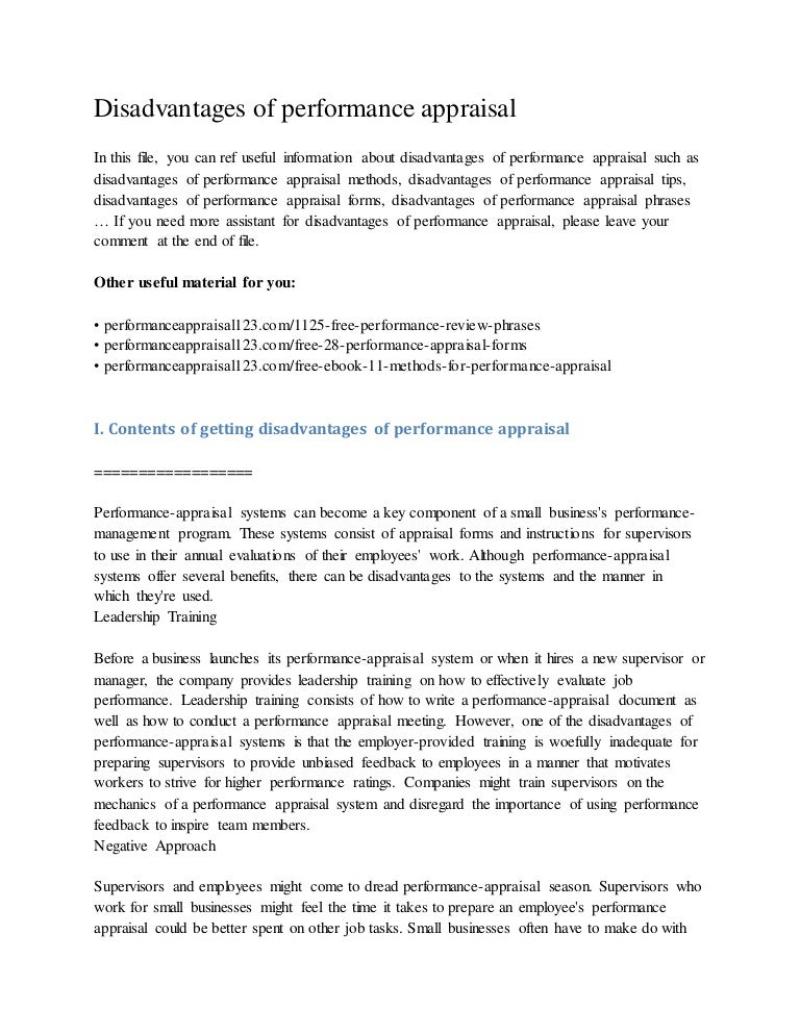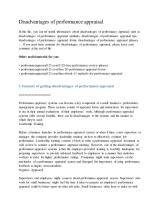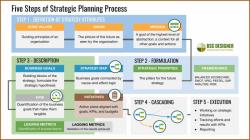What are the disadvantages of performance appraisal?
Performance appraisals, while useful for assessing employee performance, have some potential disadvantages. Here are some common drawbacks:
Subjectivity: Appraisals can be subjective, influenced by personal biases or opinions of the evaluator. This subjectivity can lead to unfair assessments.
Inconsistency: Different evaluators may use different criteria or standards, leading to inconsistencies in the appraisal process across the organization.
Stress and Anxiety: Employees may experience stress and anxiety leading up to performance appraisals, affecting their well-being and potentially hindering their job performance.
Time-Consuming: The process of conducting performance appraisals can be time-consuming, taking away valuable time from other essential tasks.
Demotivation: Poorly executed appraisals or unfavorable feedback may demotivate employees, negatively impacting morale and job satisfaction.
Focus on Short-Term Goals: Some appraisal systems may encourage employees to focus on short-term goals to meet performance criteria, potentially neglecting long-term objectives.
Lack of Developmental Feedback: If appraisals primarily focus on past performance rather than providing constructive developmental feedback, employees may miss opportunities for growth.
Resistance to Change: Employees and managers may resist the implementation of new appraisal systems, especially if they perceive them as unfair or ineffective.
Overemphasis on Quantifiable Metrics: Overreliance on quantitative metrics may neglect qualitative aspects of an employee's performance, missing important contributions.
Neglect of Team Dynamics: Individual-focused appraisals may overlook the collaborative efforts within a team, neglecting the impact of teamwork on overall performance.
Organizations should be aware of these disadvantages and strive to implement performance appraisal systems that are fair, consistent, and focused on both individual and organizational development. Regular evaluations and adjustments to the appraisal process can help mitigate some of these challenges.
Identifying the drawbacks or limitations of performance appraisals
Performance appraisals, while aiming to improve employee performance and engagement, can sometimes fall short and even backfire. Here are some key drawbacks and limitations to consider:
Subjectivity and Bias:
- Halo effect: When a positive trait influences the overall evaluation of other, possibly unrelated aspects of an employee's performance.
- Horn effect: The reverse of the halo effect, where one negative trait unfairly sways the entire evaluation.
- Personal biases: Unconscious or conscious prejudices based on factors like gender, race, or personality can skew evaluations.
- Calibration errors: Different managers assess performance differently, leading to inconsistencies and unfair comparisons.
Focus on the Past:
- Retrospective perspective: Evaluations often look back at past achievements, neglecting potential and future growth.
- Difficulty measuring intangible skills: Soft skills like creativity or leadership can be challenging to quantify within traditional appraisal models.
- Inflexibility for changing roles: Appraisals based on static criteria might not adapt to evolving job requirements or individual career paths.
Stress and Demotivation:
- Performance anxiety: The pressure to perform well can be stressful and hinder creativity and risk-taking.
- Negative feedback delivery: Poorly communicated feedback can demotivate employees and damage relationships with managers.
- Emphasis on competition: Focusing too much on comparing individuals can breed unhealthy competition instead of collaborative teamwork.
Bureaucracy and Time Cost:
- Administrative burden: Designing, conducting, and documenting appraisals can be time-consuming and resource-intensive for both managers and employees.
- Lack of actionable insights: The generated data might not translate into meaningful guidance for future development.
- Perceived unfairness: Employees may question the validity of evaluations, leading to decreased trust and engagement.
Alternatives and Improvements:
- Continuous feedback: Regular, informal feedback throughout the year can provide more timely and relevant insights.
- Goal setting and self-assessment: Empowering employees to set their own goals and reflect on their performance can increase ownership and engagement.
- 360-degree feedback: Gathering feedback from colleagues and peers can offer a more holistic perspective.
- Focus on development: Shifting the focus from appraisal to development through coaching and mentorship can yield more positive outcomes.
Remember, performance appraisals are just one tool in the management toolbox. Recognizing their limitations and exploring alternative approaches can lead to a more effective and empowering system for both employees and organizations.













